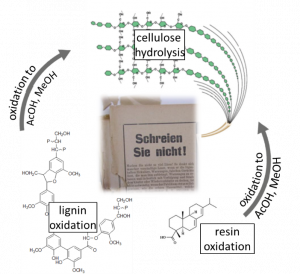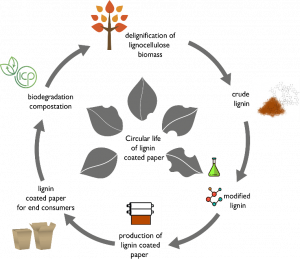The Slovenian Research Agency approved funding for a 3-year research project titled “Effects of lignin degradation on paper-based materials in extreme conditions”. The project will explore the effect of lignin degradation on cellulose-based materials in two “extreme” contexts: during composting and long-term environmental degradation. The variables affecting the degradation pathways as well as the degradation products are of specific interest.

The effect of lignin on long-term degradation of historic paper is an unresolved research problem significantly affecting conservation industry standards. There is ample research and good evidence available that lignin has no negative or possibly a small positive antioxidative impact on paper. Oxidation of lignin (and resin acids) leads to the production of strong organic acids that can either be emitted or affect the rate of cellulose hydrolysis in archival paper.

Over the last decade, environmentally friendly lignin-based materials, including coatings, have received significant attention. Their sustainability is related to the environmental impact of their disposal, in which decomposition of lignin-coated paper by composting plays a significant role, however, this process is not well researched.
The results will enable better design of parameters affecting biodegradability of lignin-rich materials and understanding of the impact of lignin on long-term degradation of lignin-rich paper in heritage collections.
The project is a collaboration between the Heritage Science Laboratory Ljubljana, the Pulp and Paper Institute and the Research Institute of the Institute for the Protection of Cultural Heritage of Slovenia.
Please read more about the project here or contact us if you need more information or if you are interested in collaboration.
